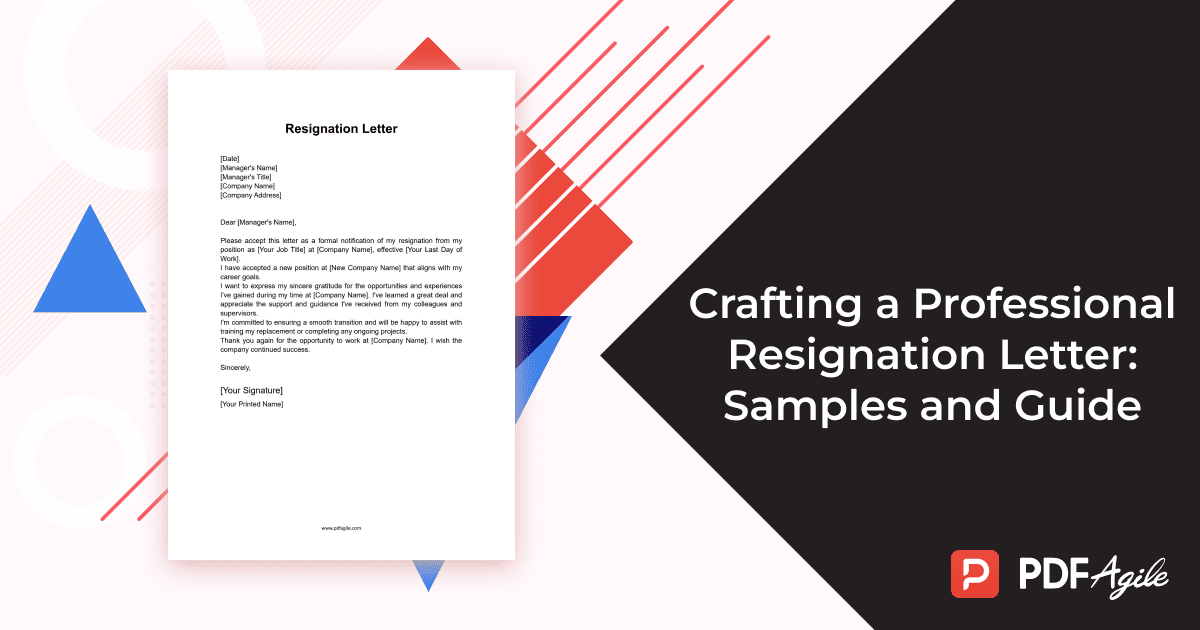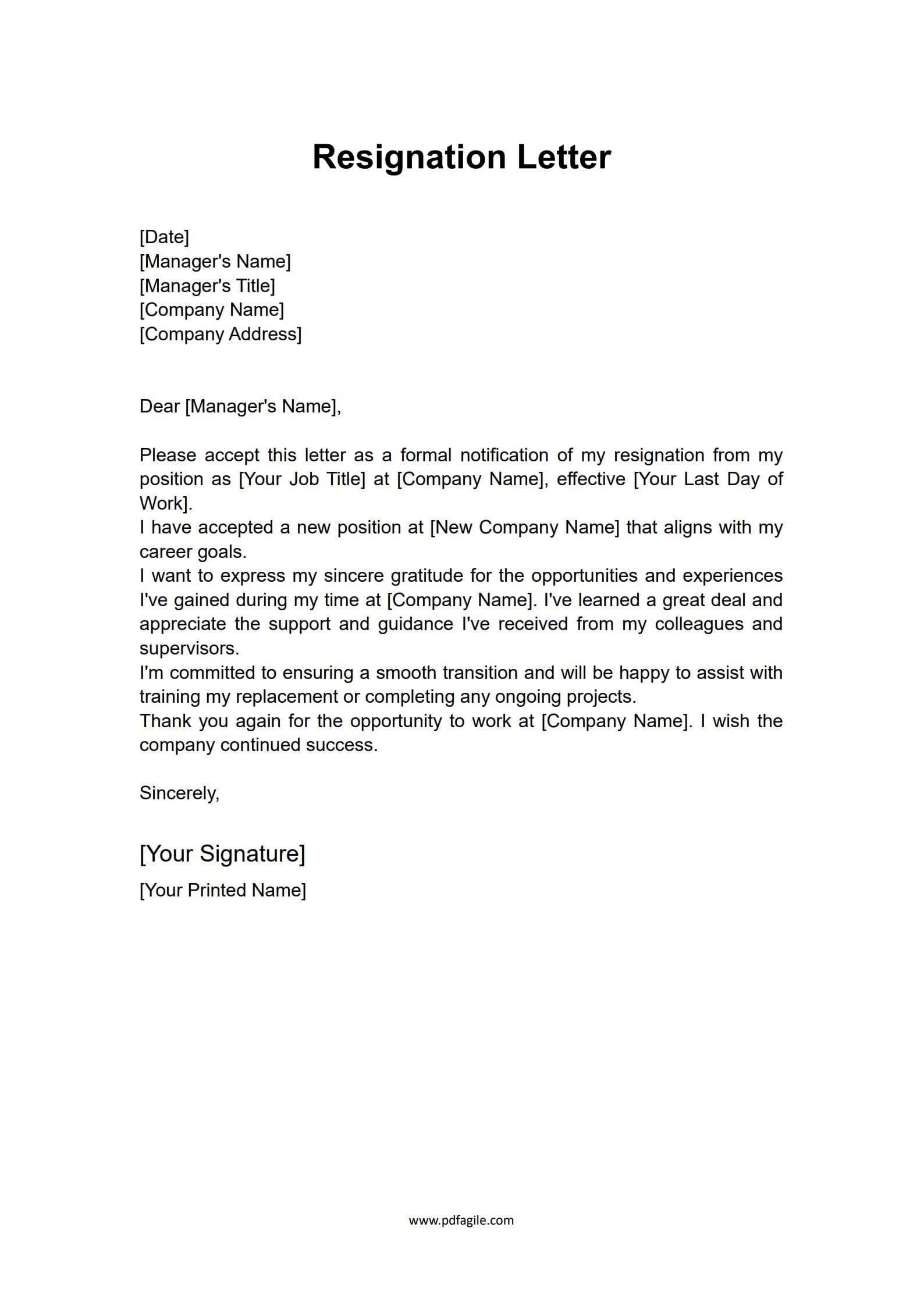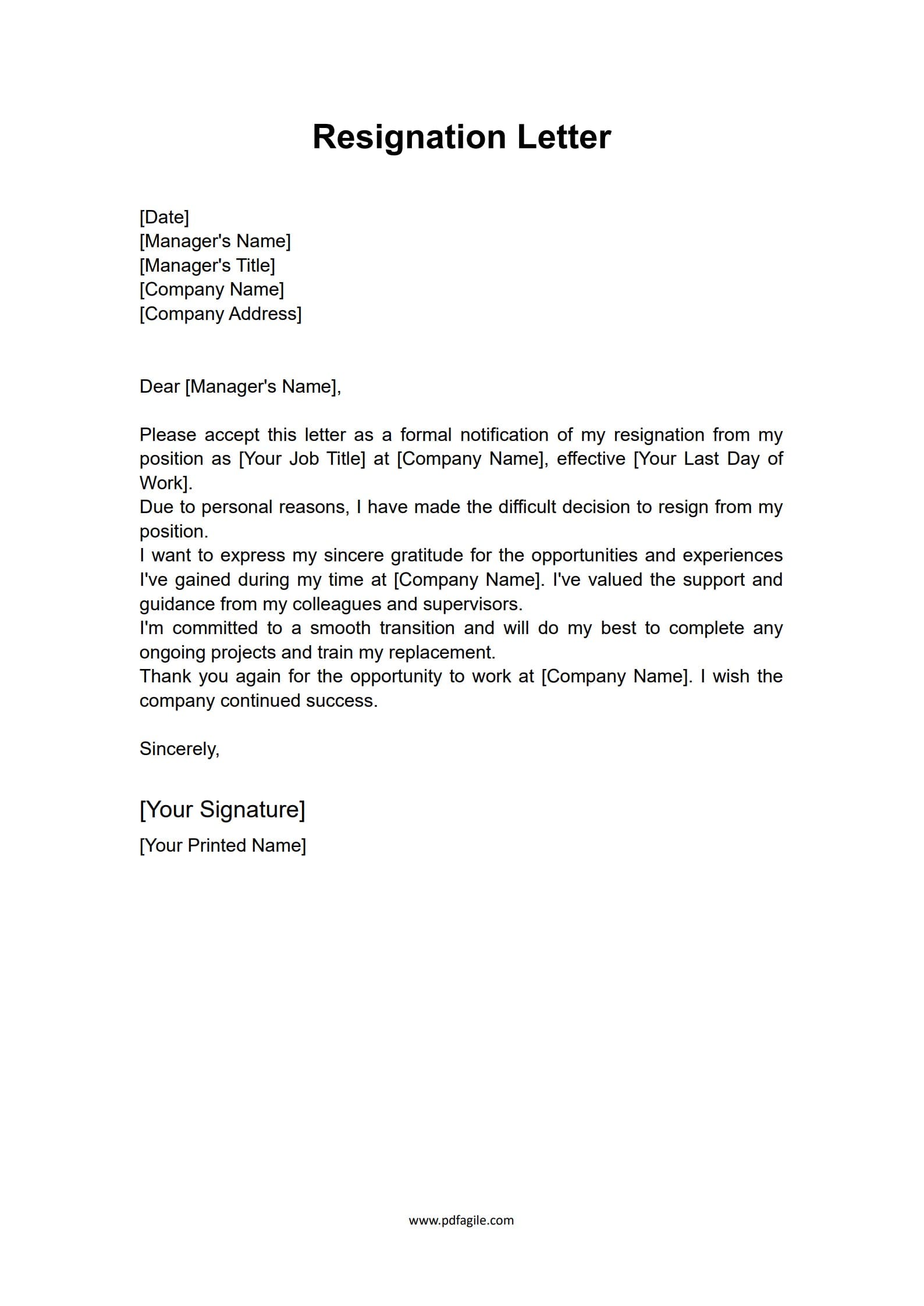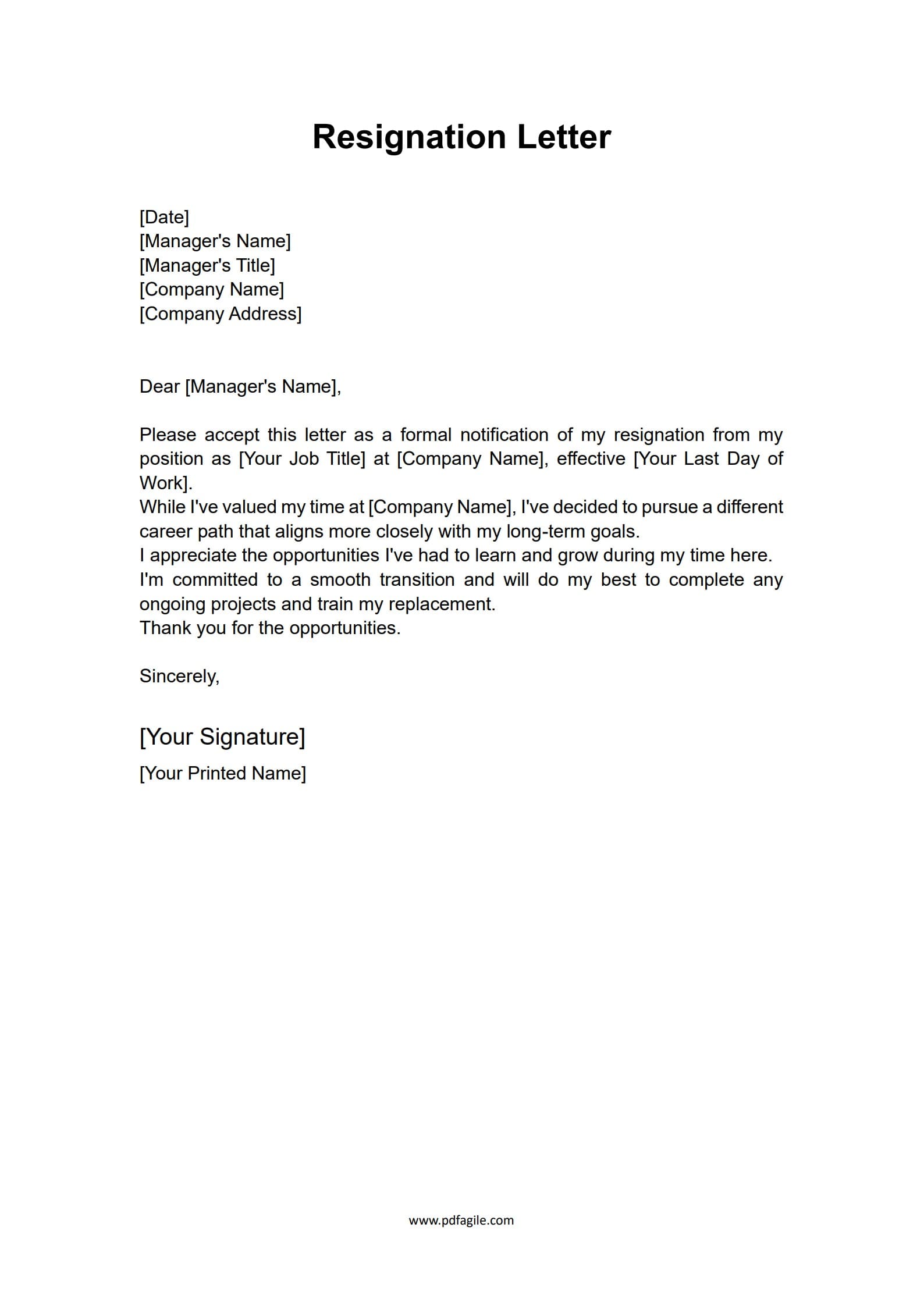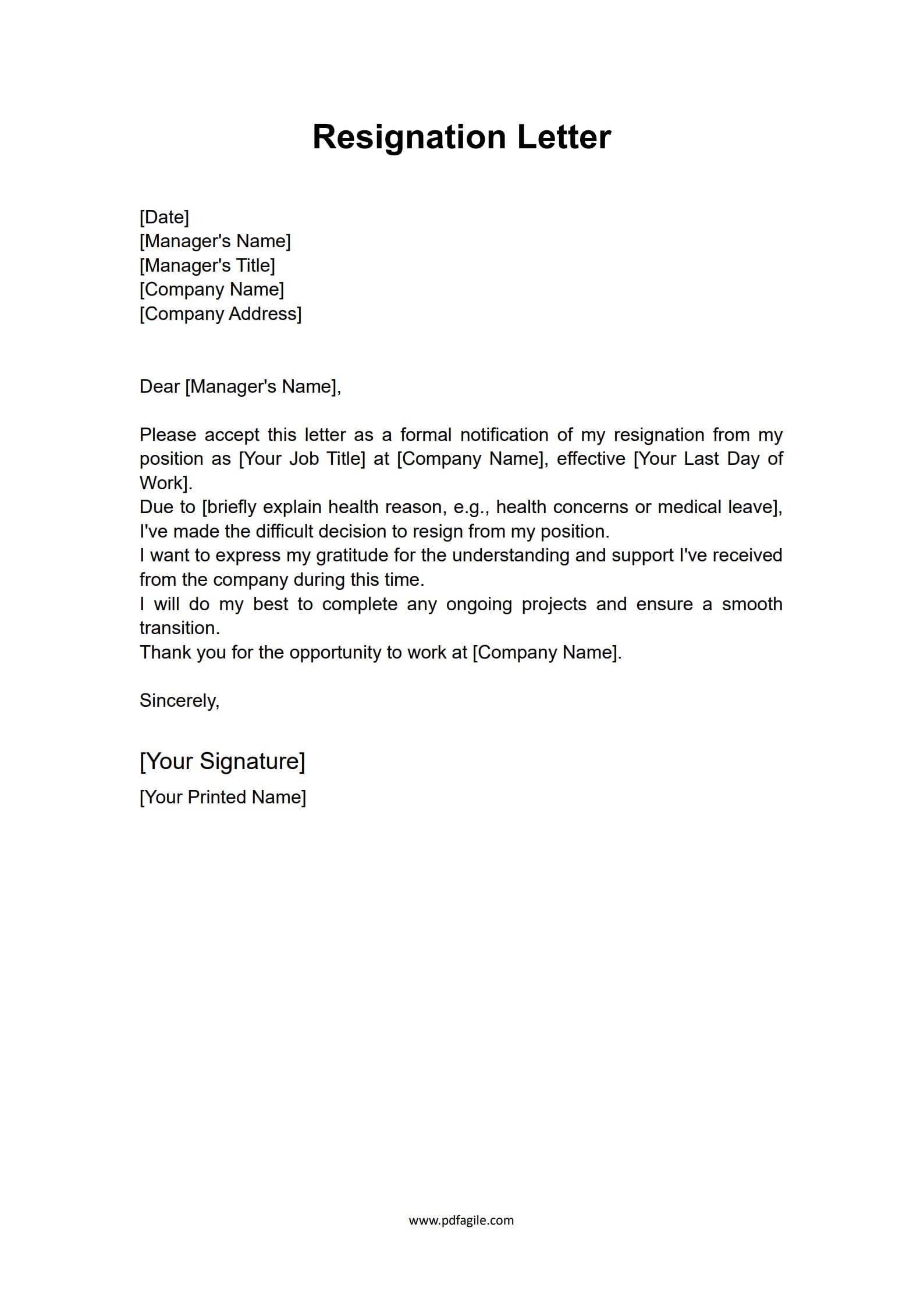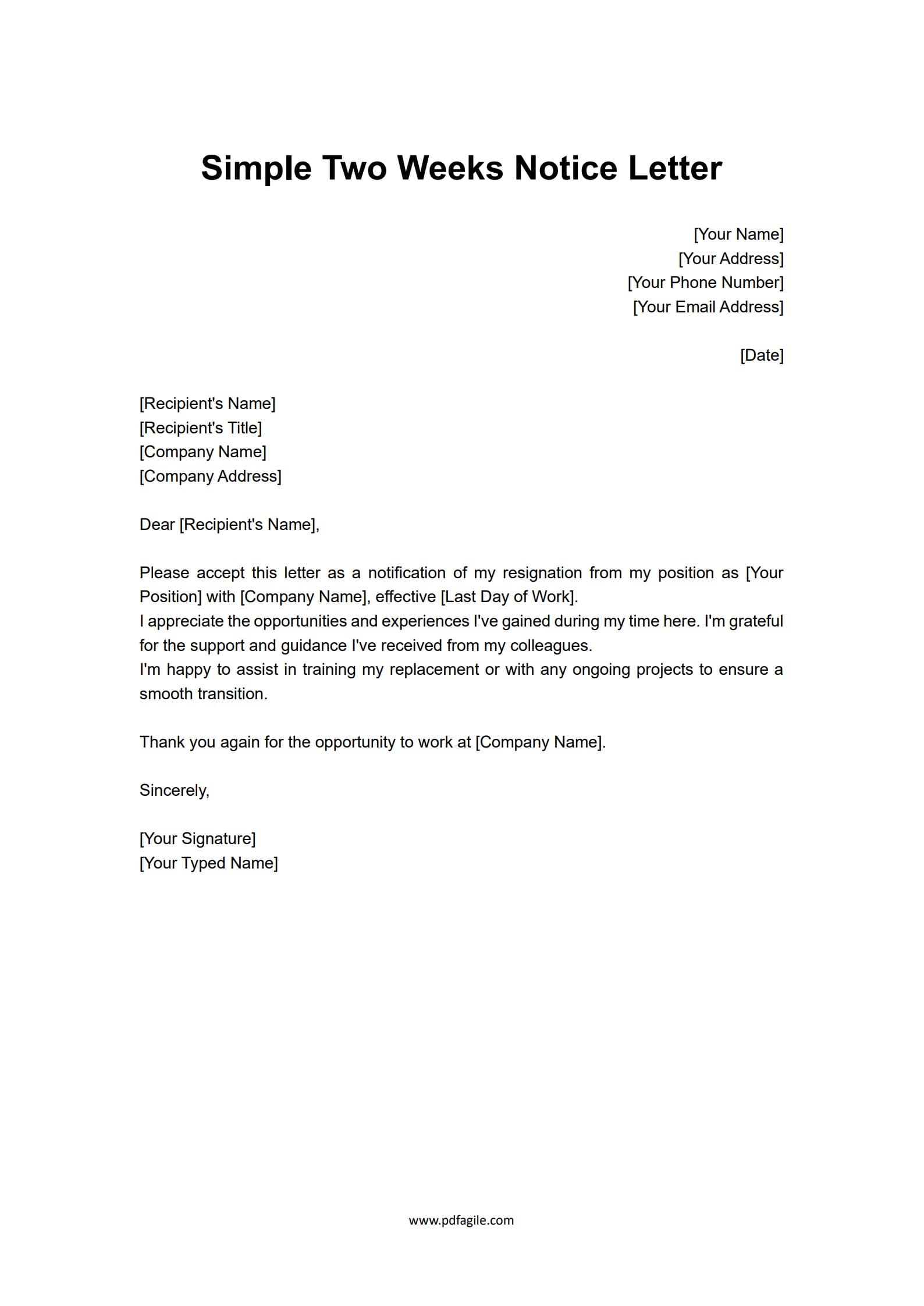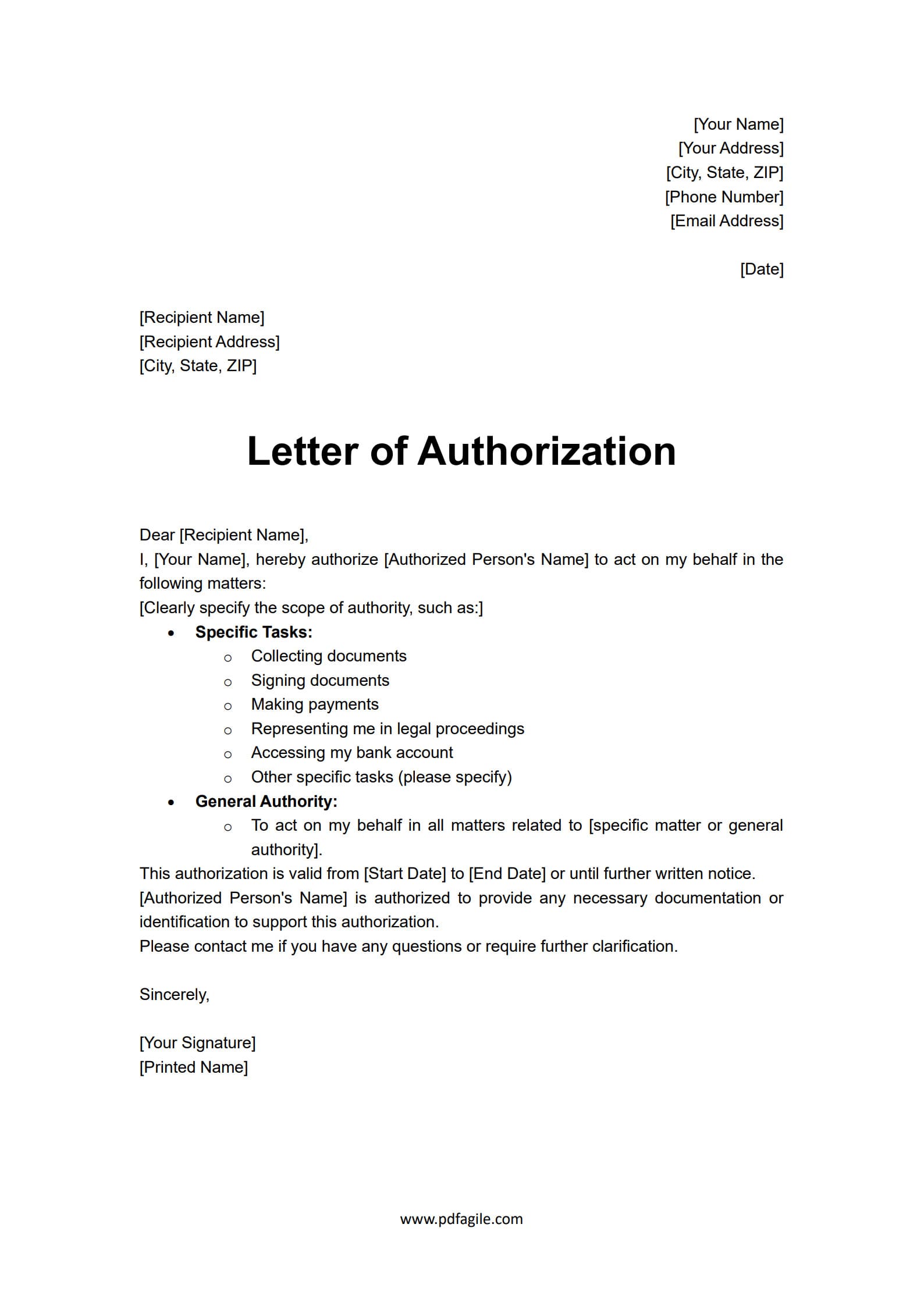What is a Resignation Letter?
A resignation letter is a formal document notifying your employer of your intention to leave your position. It should be clear, concise, and professional. The letter typically includes details about your last day of work and expresses your appreciation for the experience you gained while working there.
Resignation Letter Samples and Examples (Four Different Types)
Here are four common resignation scenarios and corresponding letter examples to guide you through the process:
1. Resigning to Pursue a New Job Opportunity
If you've landed a new job that aligns with your career goals, you might consider a resignation letter like this:
[Your Name]
[Your Address]
[Your Phone Number]
[Your Email Address]
[Date]
[Manager's Name]
[Manager's Title]
[Company Name]
[Company Address]
Dear [Manager's Name],
Please accept this letter as a formal notification of my resignation from my position as [Your Job Title] at [Company Name], effective [Your Last Day of Work].
I have accepted a new position at [New Company Name] that aligns with my career goals.
I want to express my sincere gratitude for the opportunities and experiences I've gained during my time at [Company Name]. I've learned a great deal and appreciate the support and guidance I've received from my colleagues and supervisors.
I'm committed to ensuring a smooth transition and will be happy to assist with training my replacement or completing any ongoing projects.
Thank you again for the opportunity to work at [Company Name]. I wish the company continued success.
Sincerely,
[Your Signature]
[Your Printed Name]
2. Resigning Due to Personal Reasons
Sometimes, personal circumstances necessitate a change in career path. Here's how you might approach your resignation letter:
[Your Name]
[Your Address]
[Your Phone Number]
[Your Email Address]
[Date]
[Manager's Name]
[Manager's Title]
[Company Name]
[Company Address]
Dear [Manager's Name],
Please accept this letter as a formal notification of my resignation from my position as [Your Job Title] at [Company Name], effective [Your Last Day of Work].
Due to personal reasons, I have made the difficult decision to resign from my position.
I want to express my sincere gratitude for the opportunities and experiences I've gained during my time at [Company Name]. I've valued the support and guidance from my colleagues and supervisors.
I'm committed to a smooth transition and will do my best to complete any ongoing projects and train my replacement.
Thank you again for the opportunity to work at [Company Name]. I wish the company continued success.
Sincerely,
[Your Signature]
[Your Printed Name]
3. Resigning Due to Dissatisfaction with the Role or Company
If you're pursuing a different career path or simply looking for a change, you can use a letter like this:
[Your Name]
[Your Address]
[Your Phone Number]
[Your Email Address]
[Date]
[Manager's Name]
[Manager's Title]
[Company Name]
[Company Address]
Dear [Manager's Name],
Please accept this letter as a formal notification of my resignation from my position as [Your Job Title] at [Company Name], effective [Your Last Day of Work].
While I've valued my time at [Company Name], I've decided to pursue a different career path that aligns more closely with my long-term goals.
I appreciate the opportunities I've had to learn and grow during my time here.
I'm committed to a smooth transition and will do my best to complete any ongoing projects and train my replacement.
Thank you for the opportunities.
Sincerely,
[Your Signature]
[Your Printed Name]
4. Resigning Due to Health Reasons
If health concerns necessitate your departure, a compassionate and concise letter can be appropriate:
[Your Name]
[Your Address]
[Your Phone Number]
[Your Email Address]
[Date]
[Manager's Name]
[Manager's Title]
[Company Name]
[Company Address]
Dear [Manager's Name],
Please accept this letter as a formal notification of my resignation from my position as [Your Job Title] at [Company Name], effective [Your Last Day of Work].
Due to [briefly explain health reason, e.g., health concerns or medical leave], I've made the difficult decision to resign from my position.
I want to express my gratitude for the understanding and support I've received from the company during this time.
I will do my best to complete any ongoing projects and ensure a smooth transition.
Thank you for the opportunity to work at [Company Name].
Sincerely,
[Your Signature]
[Your Printed Name]
How to Write a Resignation Letter
Crafting a well-written resignation letter is essential for leaving a positive impression on your employer. Here's a step-by-step guide to help you through the process:
1. Start Strong
Begin your letter with a clear and concise statement of your intention to resign. Specify your last day of work to give your employer ample time to plan for your departure.
2. Express Gratitude
Take a moment to acknowledge the positive aspects of your time at the company. Thank your employer for the opportunities, experiences, and support you've received.
3. Offer Assistance
Demonstrate your professionalism by offering to help with the transition. This could involve training your replacement, completing ongoing projects, or assisting with knowledge transfer.
4. Keep it Concise and Professional
While it's important to express your gratitude, avoid going into excessive detail or sharing negative sentiments. Keep your letter focused and professional.
5. Proofread Carefully
Before sending your letter, proofread it carefully to ensure there are no errors in grammar, punctuation, or spelling. A well-written letter reflects your attention to detail and professionalism.
Additional Tips and Considerations
Consider Your Company's Policy
Some companies may have specific guidelines or procedures for submitting a resignation letter. Be sure to follow these guidelines to ensure a smooth process.
Deliver the Letter Personally
If feasible, consider delivering your resignation letter in person to your manager. This allows for a face-to-face conversation to address any questions or concerns.
Send a Follow-up Email
After delivering your letter in person or by mail, send a follow-up email to your manager with a copy of the letter attached. This provides a digital record of your resignation.
Maintain Professionalism After Resigning
Even after you've submitted your resignation, it's important to maintain a professional demeanor. Avoid burning bridges by engaging in negative behavior or gossip.
Frequently Asked Questions (FAQs)
Q: How much notice should I give?
While two weeks' notice is a common practice, it's always best to check your employment contract or company policy for specific guidelines. Generally, providing a reasonable amount of notice allows your employer to plan for your departure and find a suitable replacement.
Q: Can I use a resignation letter template?
Yes, you can use a template as a starting point. However, it's important to personalize it with your specific information and tailor it to your unique situation. Avoid generic templates that may not convey your sincere gratitude and professional intentions.
Q: Should I be specific about my reason for leaving?
While you can briefly mention your reason for leaving (e.g., pursuing a new opportunity, personal reasons), it's not always necessary to go into detail. Keep your explanation concise and professional.
Q: How should I deliver my resignation letter?
The best method for delivering your resignation letter depends on your company's policies and your relationship with your manager. Consider these options:
- In-Person: This is a formal and respectful way to deliver your letter. It allows for a face-to-face conversation to address any questions or concerns.
- Email: If your company allows electronic communication, you can send a professional email with your resignation letter attached.
- Hard Copy: Deliver a printed copy of your letter to your manager's office or human resources department.
Q: What if I have a non-compete agreement?
If you have a non-compete agreement, it's crucial to review its terms carefully before resigning. Understand the specific restrictions, such as limitations on working for a competitor or starting your own business. If you have any questions or concerns, consult with a legal professional.
Free Download: Your Customizable Resignation Letter Templates
Need a quick and easy way to create a professional resignation letter? Download our free, customizable templates by clicking the Use Template button on this page. Simply add your specific information and print them out.
